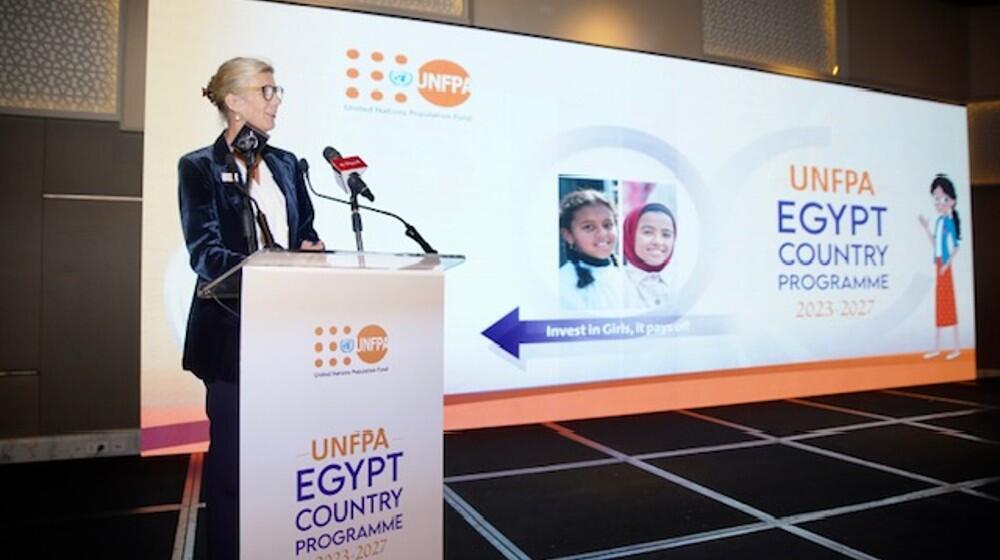The United Nations Population Fund (UNFPA) launched the 11th Country Programme for Egypt (2023-2027) on June 15, reaffirming its commitment to realizing the Sustainable Development Goals (SDGs) and Egypt’s Vision 2030.
The event was led by Frederika Meijer, UNFPA Representative in Egypt, and brought together a number of ambassadors, heads of UN agencies and ministry officials.
UNFPA’s 11th Country Program envisions creating an enabling policy and social environment where girls and young women can live up to their full potential.
The 11th Country Programme works on creating positive social norms towards adolescent girls within their households and communities and strengthens systems to ensure quality and accessible services.
It is centered around “Noura,” a symbol for all adolescent girls in Egypt, and the face of the Girls Assets Framework, an intensive girl-centered programme that empowers girls by providing them with social, health, economic and digital assets.
Noura is part of the Investment Framework for Girls in Egypt, lead by the National Council for Women, under the patronage of the First Lady of Egypt, Entissar El-Sisi, and was integrated in the flagship National Project for Development of the Egyptian Family.
The 2023-2027 Country Programme will contribute to realizing the United Nations Sustainable Development Cooperation Framework (UNSDCF) outcomes and is aligned with the UNFPA Strategic Plan (2022-2025). It was developed based consultations with stakeholders and in partnership with the Government of Egypt.
The programme also encourages multi-sectoral coordination to address gender-based violence against women and girls and harmful practices, reproductive health and family planning and maternal health.
“The new Country Programme opens the door for accelerated efforts to deliver on our promise of a world with Zero Unmet Need for Family Planning, Zero Preventable Maternal Deaths and Zero Gender-Based Violence against women and girls and Harmful Practices,” Meijer said, “but in order to deliver on global commitments, we must prioritize women and girls’ empowerment.”
When girls have their rights and choices, Meijer explained, they can reach their full potential, and grow up to be a generation of women who contribute to the health and prosperity of whole families and communities.
The event brought together UNFPA partners across different sectors, who participated in consultations reflecting on challenges in delivering reproductive health, family planning and gender-based violence against women and girls services, the root causes of discriminatory social norms and discussed ways to strengthen governance and policy accountability.
“We will work to reach the furthest left behind,” Meijer said, “because everyone counts.”


